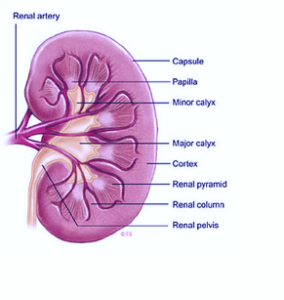Nephrotic Syndrome is characterized by the release of excessive amounts of protein in the urine due to damaged kidneys. People affected by the syndrome have low levels of protein and high quantities of lipids in their blood. Among the most prominent manifestation of the syndrome is swelling which is a result of fluid retention.
The symptoms of the disorder should not be taken for granted because these increase the likelihood of blood clots, infections and other health complications. Treatment for nephrotic syndrome should be sought to get relief from the symptoms that accompany the disease and prevent complications from arising.
Nephrotic Syndrome in children
Studies showed that around 2 out of 10,000 individuals suffer from Nephrotic Syndrome (NS) and affects people from all age brackets. However, it has been found to happen more frequently in children aged 2 to 6 years old. Statistics also revealed that majority of those affected are males. The syndrome is hard to detect in adults due to the presence of other underlying medical disorders.
Nephrotic Syndrome causes
In Nephrotic Syndrome, the small blood vessels or glomeruli in the kidneys are damaged. This part of the kidneys is where filtration of the waste products in the blood occurs. These are then released by means of urine. When the glomeruli are destroyed, the kidneys cannot do their filtration job properly, so proteins are leaked into the urine. It must be remembered that protein is important in keeping the level of fluids in the body normal. If protein is not filtered and seeps through the urine, the body keeps excess fluids resulting in swelling.
There are various reasons why the glomeruli get damaged, and among these are:
- Kidney disease
The most common culprit for NS is minimal change disease wherein the kidneys look normal but functions abnormally.
- Renal vein thrombosis
This is a condition in which blood clot is formed in the vein that is connected to the kidney.
- Persistent inflammatory disease
The most common persistent inflammatory disease associated to NS is systemic lupus erythematosus wherein the body abnormally attacks the healthy cells which may cause serious damage to the kidneys.
- Immune-related disease
An example is amyloidosis in which the amyloid proteins gather in the tissues and organs that often affect the kidneys.
Other factors that may cause harm to the glomeruli are kidney scarring and inflammation; certain medications and infectious diseases; as well as diabetes, multiple myeloma and autoimmune disorders. There is a very little chance to inherit the disorder from a relative.
There are plenty of factors that increase the chances of developing Nephrotic Syndrome. These are:
- Drugs
Certain medications have been associated to NS; these include non-steroidal anti-inflammatory drugs or NSAIDs used in treating inflammation or swelling, as well as antibiotics used in fighting infections.
- Infections
Infectious diseases can also trigger NS and among these are malaria, hepatitis B and C and HIV.
- Diseases
Kidney disease is the number one culprit of NS. Also included in the list are amyloidosis, lupus and diabetes.
Signs and Symptoms of Nephrotic Syndrome
Swelling is the most prominent symptom of the syndrome. Around 95% of those affected have swollen feet, hands, face, abdomen and ankles. Sufferers also find that their blood pressure and cholesterol levels are elevated and their urine is quite foamy. They also pass urine less frequently. Though some are anorexic, others tend to weight gain as a result of fluid retention. There are those who also experience breathing difficulty as a result of water accumulation around the lungs.
A visit to the doctor is highly recommended upon experiencing these symptoms. This is especially important if new symptoms arise like severe headache, skin sores, fever, cough and pain during urination. Complications, which include malnutrition, hypertension, blood clots and organ failure, might occur if the syndrome is ignored.
Nephrotic Syndrome Diagnosis
A series of tests will be done to diagnose the syndrome accurately. These tests may include:
- Blood test
This is done to determine the level of the protein albumin and confirm the presence of hypoalbuminemia. A blood test will also establish the level of blood urea and serum creatinine to evaluate kidney function.
- Urine test
Since NS is characterized by high amounts of protein in the urine, a urinalysis will verify if the condition is true.
- Kidney biopsy
This test will help doctors evaluate the extent of kidney damage.
- Imaging
The doctor may also request for imaging tests such as MRI, CT scan and ultrasound to diagnose the syndrome properly.

Treatment for Nephrotic Syndrome
NS treatment focuses on treating the underlying condition, more often through medication. In some cases, kidney dialysis and transplant might be the only option.
Each patient has a different prognosis. Nephrotic syndrome might be short and acute in some, while chronic and unresponsive in others. Complications may also occur and these will have a huge effect on person’s prognosis.